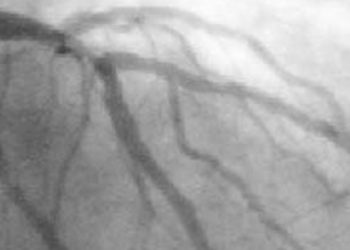Glycopyrrolate not associated with decreased vasopressor use for cesarean deliveries
1. In pregnant patients undergoing non-elective cesarean section, the use of glycopyrrolate does not significantly reduce vasopressor requirements and prevent hypotension compared to placebo.
Evidence Rating Level: 1 (Excellent)
In cesarean sections, spinal anesthesia is a frequently used anesthetic technique; however, hypotension is a common adverse event which has negative implications on both maternal health and neonatal outcomes. Recent studies have explored the use of glycopyrrolate during spinal anesthesia as it increases maternal heart rate and consequently maintains cardiac output, while having a minimal effect on the fetus due to its inability to cross the placental barrier. In this randomized double-blind clinical trial, 258 pregnant participants undergoing non-elective cesarean section were randomized to the glycopyrrolate group or the normal saline group to assess hemodynamic parameters throughout the surgery at specific time points. Following the spinal injection, a phenylephrine infusion was initiated and additional vasopressor could be used to maintain maternal systolic blood pressure (SBP) within 20% of baseline. The results of this study show that the incidence of hypotension was 30% in the glycopyrrolate group and 39% in the saline group (mean difference of lowest SBP 4.57, 95%CI 1.7-7.4). The phenylephrine volume for maintaining intraoperative maternal hemodynamics was additionally similar between both groups (mean difference 5 micrograms). Maternal adverse events such as nausea, vomiting, and dry mouth were similar in quantity between the two groups. In conclusion, among patients undergoing non-elective cesarean sections, the use of glycopyrrolate did not improve maternal hemodynamics or decrease phenylephrine use, compared to the use of normal saline. The double-blinded nature of this study with participants, investigators, and anesthesiologists blinded to allocation, reduces bias. However, thresholds between the anesthesiologists for maintaining maternal SBP and amount of phenylephrine used may vary, which is a potential limitation of this study. Further studies exploring the use of glycopyrrolate and other similar agents in cesarean sections could be valuable to assess for differences in vasopressor requirements and optimize maternal-fetal outcomes.
Click to read the study in BMC Anesthesiology
Image: PD
©2022 2 Minute Medicine, Inc. All rights reserved. No works may be reproduced without expressed written consent from 2 Minute Medicine, Inc. Inquire about licensing here. No article should be construed as medical advice and is not intended as such by the authors or by 2 Minute Medicine, Inc.







